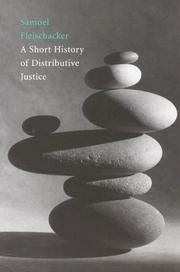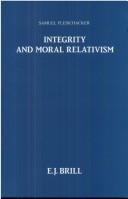| Listing 1 - 10 of 20 | << page >> |
Sort by
|

ISBN: 0674018311 0674013409 9780674018310 0674036980 0674263464 Year: 2004 Publisher: Cambridge: Harvard university press,
Abstract | Keywords | Export | Availability | Bookmark
 Loading...
Loading...Choose an application
- Reference Manager
- EndNote
- RefWorks (Direct export to RefWorks)
The surprising finding of this book is that, contrary to conventional wisdom, global income inequality is decreasing. Critics of globalization and others maintain that the spread of consumer capitalism is dramatically polarizing the worldwide distribution of income. But as the demographer Glenn Firebaugh carefully shows, income inequality for the world peaked in the late twentieth century and is now heading downward because of declining income inequality across nations. Furthermore, as income inequality declines across nations, it is rising within nations (though not as rapidly as it is declining across nations). Firebaugh claims that this historic transition represents a new geography of global income inequality in the twenty-first century. This book documents the new geography, describes its causes, and explains why other analysts have missed one of the defining features of our era--a transition in inequality that is reducing the importance of where a person is born in determining his or her future well-being.
Political philosophy. Social philosophy --- Legal theory and methods. Philosophy of law --- Distributieve rechtvaardigheid --- Distributive justice --- Justice [Distributive ] --- Justice distributive --- Rechtvaardigheid [Distributieve ] --- Rechtvaardigheid [Verdelende ] --- Verdelende rechtvaardigheid --- Distributive justice. --- Distribution (Economic theory) --- Justice --- Social justice --- Wealth --- Moral and ethical aspects
Book
ISBN: 0801429919 Year: 1994 Publisher: New York Cornell University Press
Abstract | Keywords | Export | Availability | Bookmark
 Loading...
Loading...Choose an application
- Reference Manager
- EndNote
- RefWorks (Direct export to RefWorks)
Ethical relativism --- Ethisch relativisme --- Moreel relativisme --- Relativism [Ethical ] --- Relativisme [Ethisch ] --- Relativisme [Moreel ] --- Relativisme moral --- Culture --- -Ethical relativism --- Multiculturalism --- -Cultural diversity policy --- Cultural pluralism --- Cultural pluralism policy --- Ethnic diversity policy --- Social policy --- Anti-racism --- Ethnicity --- Cultural fusion --- Moral relativism --- Relativism, Ethical --- Relativity (Ethics) --- Ethics --- Ethics, Evolutionary --- Cultural sociology --- Sociology of culture --- Civilization --- Moral and ethical aspects --- Government policy --- Social aspects --- Ethical relativism. --- Moral and ethical aspects. --- -Moral and ethical aspects --- Cultural diversity policy --- Popular culture

ISBN: 9004095268 9004451641 9789004095267 9789004451643 Year: 1992 Volume: 10 Publisher: Leiden: Brill,
Abstract | Keywords | Export | Availability | Bookmark
 Loading...
Loading...Choose an application
- Reference Manager
- EndNote
- RefWorks (Direct export to RefWorks)
Programs of ethical relativism notoriously face two great difficulties: 1) how can they account for our need to make ethical judgements about other groups and individuals with whom we come into conflict? and 2) how can they allow for us to criticize the group, set of desires, etc. to which our ethical norms are said to be relative? Integrity and Moral Relativism develops a moderate version of cultural relativism that can answer these questions. After examining and defending the notion of a "world-picture," and of incommensurable differences across world-pictures, the book brings its theoretical framework together with the history of anthropology to argue that a culture is indeed the appropriate expression of a world picture. It then draws on literary, philosophical and historical resources to illustrate the way in which Western society, specifically, contains traditions distinguishing legitimate cross-cultural judgment, and legitimate from illegitimate cultural self-criticism. As long as there is a language for these possibilities, an individual can see ethics as culturally based without compromising his or her integrity.
Ethical relativism. --- Integrity. --- Ethical relativism --- Integrity

ISBN: 0691004463 9786612753664 1282753665 1400822947 9781400822942 9780691004464 1400802350 Year: 1999 Publisher: Princeton (N.J.): Princeton university press,
Abstract | Keywords | Export | Availability | Bookmark
 Loading...
Loading...Choose an application
- Reference Manager
- EndNote
- RefWorks (Direct export to RefWorks)
Taking the title of his book from Isaiah Berlin's famous essay distinguishing a negative concept of liberty connoting lack of interference by others from a positive concept involving participation in the political realm, Samuel Fleischacker explores a third definition of liberty that lies between the first two. In Fleischacker's view, Kant and Adam Smith think of liberty as a matter of acting on our capacity for judgment, thereby differing both from those who tie it to the satisfaction of our desires and those who translate it as action in accordance with reason or "will." Integrating the thought of Kant and Smith, and developing his own stand through readings of the Critique of Judgment and The Wealth of Nations, Fleischacker shows how different acting on one's best judgment is from acting on one's desires--how, in particular, good judgment, as opposed to mere desire, can flourish only in favorable social and political conditions. At the same time, exercising judgment is something every individual must do for him- or herself, hence not something that philosophers and politicians who reason better than the rest of us can do in our stead. For this reason advocates of a liberty based on judgment are likely to be more concerned than are libertarians to make sure that government provides people with conditions for the use of their liberty--for example, excellent standards of education, health care, and unemployment insurance--while at the same time promoting a less paternalistic view of government than most of the movements associated for the past thirty years with the political left.
Judgment (Ethics) --- Liberty --- Kant, Immanuel, --- Smith, Adam, --- Contributions in political science --- Judgment (Ethics). --- Kant, Immanuel, 1724-1804 -- Contributions in political science. --- Liberty. --- Smith, Adam, 1723-1790. --- Political Theory of the State --- Political Science --- Law, Politics & Government --- Moral judgment --- Civil liberty --- Emancipation --- Freedom --- Liberation --- Personal liberty --- Kant, Immanuel --- -Smith, Adam --- Ethics --- Democracy --- Natural law --- Political science --- Equality --- Libertarianism --- Social control --- Kant, Emmanuel --- Kant, Emanuel --- Kant, Emanuele --- Smith, Adam --- Kant, I. --- Kānt, ʻAmmānūʼīl, --- Kant, Immanouel, --- Kant, Immanuil, --- Kʻantʻŭ, --- Kant, --- Kant, Emmanuel, --- Ḳanṭ, ʻImanuʼel, --- Kant, E., --- Kant, Emanuel, --- Cantơ, I., --- Kant, Emanuele, --- Kant, Im. --- קאנט --- קאנט, א. --- קאנט, עמנואל --- קאנט, עמנואל, --- קאנט, ע. --- קנט --- קנט, עמנואל --- קנט, עמנואל, --- كانت ، ايمانوئل --- كنت، إمانويل، --- カントイマニユエル, --- Kangde, --- 康德, --- Kanṭ, Īmānwīl, --- كانط، إيمانويل --- Kant, Manuel, --- Kant, Immanuel, - 1724-1804 - Contributions in political science --- Smith, Adam, - 1723-1790 --- Kant, Immanuel, - 1724-1804 --- Contributions in political science.

ISBN: 069112390X 0691115028 1282158368 1400826055 9786612158360 9781400826056 9780691115023 9780691123905 6612158360 9781282158368 Year: 2004 Publisher: Princeton: Princeton university press,
Abstract | Keywords | Export | Availability | Bookmark
 Loading...
Loading...Choose an application
- Reference Manager
- EndNote
- RefWorks (Direct export to RefWorks)
Adam Smith was a philosopher before he ever wrote about economics, yet until now there has never been a philosophical commentary on the Wealth of Nations. Samuel Fleischacker suggests that Smith's vastly influential treatise on economics can be better understood if placed in the light of his epistemology, philosophy of science, and moral theory. He lays out the relevance of these aspects of Smith's thought to specific themes in the Wealth of Nations, arguing, among other things, that Smith regards social science as an extension of common sense rather than as a discipline to be approached mathematically, that he has moral as well as pragmatic reasons for approving of capitalism, and that he has an unusually strong belief in human equality that leads him to anticipate, if not quite endorse, the modern doctrine of distributive justice. Fleischacker also places Smith's views in relation to the work of his contemporaries, especially his teacher Francis Hutcheson and friend David Hume, and draws out consequences of Smith's thought for present-day political and philosophical debates. The Companion is divided into five general sections, which can be read independently of one another. It contains an index that points to commentary on specific passages in Wealth of Nations. Written in an approachable style befitting Smith's own clear yet finely honed rhetoric, it is intended for professional philosophers and political economists as well as those coming to Smith for the first time.
AA / International- internationaal --- 330.44 --- Adam Smith. --- Ethics. --- Economics --- Deontology --- Ethics, Primitive --- Ethology --- Moral philosophy --- Morality --- Morals --- Philosophy, Moral --- Science, Moral --- Philosophy --- Values --- Philosophy. --- Smith, Adam, --- Ethics --- Smith, Adam --- Adam Smith --- Economics - Philosophy --- Smith, Adam, - 1723-1790

ISBN: 9780820704142 9780820704128 0820704121 0820704148 Year: 2008 Publisher: Pittsburgh, Pa Duquesne University Press
Abstract | Keywords | Export | Availability | Bookmark
 Loading...
Loading...Choose an application
- Reference Manager
- EndNote
- RefWorks (Direct export to RefWorks)
"Given Heidegger's eventual alliance with Nazism, these essays examine the questions of how Heidegger's thought affected his most prominent Jewish students (Hannah Arendt, Leo Strauss, and Emmanuel Levinas) and how they responded to this influence in the development of their own philosophies"--Provided by publisher.
Jonas, Hans --- Strauss, Leo --- Arendt, Hannah --- Levinas, Emmanuel --- Heidegger, Martin --- Jewish philosophy --- Philosophy, Modern --- Jews --- Philosophy, Jewish --- Philosophy, Israeli --- Philosophy --- Lévinas, Emmanuel. --- Strauss, Leo. --- Lévinas, Emmanuel --- Blücher, Hannah Arendt, --- Bluecher, Hannah Arendt, --- Ārento, Hanna, --- Arendt, H. --- Arendt, Khanna, --- ארנדט, חנה --- アーレント, ハンナ, --- Khaĭdegger, Martin, --- Haĭdegger, Martin, --- Hīdajar, Mārtin, --- Hai-te-ko, --- Haidegŏ, --- Chaitenger, Martinos, --- Chaitenker, Martinos, --- Chaintenger, Martin, --- Khaĭdeger, Martin, --- Hai-te-ko-erh, --- Haideger, Marṭinn, --- Heidegger, M. --- Haideger, Martin, --- Hajdeger, Martin, --- הייגדר, מרתין --- היידגר, מרטין --- היידגר, מרטין, --- 海德格尔, --- Chaintenker, Martin, --- Hāydigir, Mārtīn, --- Hīdigir, Mārtīn, --- هاىدگر, مارتين, --- هىدگر, مارتين, --- Influence.
Book
ISBN: 9780415787567 9780415787550 Year: 2021 Publisher: London Routledge, Taylor & Francis Group
Abstract | Keywords | Export | Availability | Bookmark
 Loading...
Loading...Choose an application
- Reference Manager
- EndNote
- RefWorks (Direct export to RefWorks)
Book
ISBN: 0191047392 Year: 2015 Publisher: OUP Oxford
Abstract | Keywords | Export | Availability | Bookmark
 Loading...
Loading...Choose an application
- Reference Manager
- EndNote
- RefWorks (Direct export to RefWorks)
'It is written ...,' says the believer in a sacred text, and proceeds to justify all manner of terrifying things. Or so runs a popular caricature of religious faith today. Religions that center around a revelation--around a 'good book,' like the Torah or Gospels or Quran, which is seen as God's word--are widely regarded as irrational and dangerous: as based on outdated science and conducive to illiberal, inhumane moral attitudes. The Good and the Good Book defends revealed religion and shows how it can be reconciled with science and liberal morality. Samuel Fleischacker invites us to see revealed texts as aiming to teach neither scientific nor moral doctrines but a vision of what life is about overall. Purely naturalistic ways of thinking, he argues, cannot make much sense of our overall or ultimate good; revealed texts, by contrast, do precisely that. But these texts also need to be interpreted so as to accord with our independent understanding of morality. A delicate balance isrequired for this process of interpretation--between respecting the uncanny obscurity of our sacred texts and rendering them morally familiar. The book concludes with an account of how believers in one religion can respect believers in other religions, and secular people.
Religion --- Religion And Ethics --- Truth --- Philosophy --- Religion and ethics --- Sacred books
Book
ISBN: 9780226661896 9780226661759 Year: 2019 Publisher: Chicago University of Chicago press
Abstract | Keywords | Export | Availability | Bookmark
 Loading...
Loading...Choose an application
- Reference Manager
- EndNote
- RefWorks (Direct export to RefWorks)
Book
ISBN: 9780198733072 Year: 2015 Publisher: Oxford Oxford University Press
Abstract | Keywords | Export | Availability | Bookmark
 Loading...
Loading...Choose an application
- Reference Manager
- EndNote
- RefWorks (Direct export to RefWorks)
| Listing 1 - 10 of 20 | << page >> |
Sort by
|

 Search
Search Feedback
Feedback About UniCat
About UniCat  Help
Help News
News